In line with the Hyundai Tucson’s 2025 model, it has received significant updates which include a new facelift, reconcepted interiors, and better technological features. These changes are intended to mitigate the competition from rivals that include Toyota RAV4 and Honda CR-V. In this article, we will examine each part of the Hyundai Tucson and see how the updates from design to technology help the SUV in tackling the competition.
Hyundai Tucson Exterior Design: Striking New Appearance
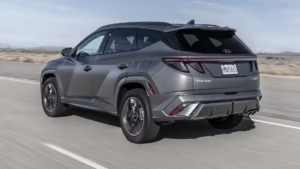
The most remarkable change done to the Tucson 2025 model is the facelift it received along with the overall exterior. Hyundai has not altered the SUV’s shape, but the outside has seen improvements in styling to sharper and aggressive looks. Accompanied with the new lower fascia, the front grille has been squared which makes it look tougher than before. As seen on the Limited trim level, same gloss black finishes on the emblems and the fascia help elevate the SUV’s trim sophisticated look more.
Additionally, You can read more about Mahindra Scorpio Classic, Mahindra Thar Roxx
Key Features of Exterior Design
| Feature | Description |
|---|---|
| Facelift | More aggressive, sharper styling |
| Front Grille | Squared design for a tougher appearance |
| Lighting System | Daytime running lights integrated into the grille, separated headlights |
| Wheels | 19-inch alloy wheels on Limited trim (previously 17-inch) |
| Rear Design | Signature fang tail lights, sleek bumper |
Pros and Cons of Exterior Design
Pros:
- Distinctive, bold styling differentiates it in the compact SUV segment.
- Rugged presence due to sharp, angular lines.
- Upscale look with larger wheels on higher trims.
Cons:
- Some rear lighting functions using incandescent elements are less advanced.
- The Limited trim’s rugged look may not appeal to conservative buyers.
Hyundai Tucson Interior Design and Technology: Major Overhaul
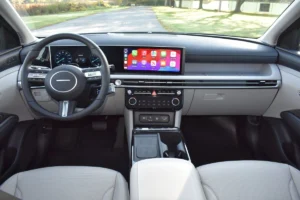
Hyundai engineers concentrated on improving comfort tech, hence, the 2025 Tucson received even more changes. The first thing you’ll notice is the new seating options. Lower trims come with cloth seats while the Limited trim features premium leather which is offered in black, gray, or a new gray with green trim. The seats are soft, well-perforated, and have excellent support for comfortable long drives.
Key Features of Interior Design and Technology
| Feature | Description |
| Seating Options | Cloth seats on lower trims, premium leather on Limited trim |
| Dashboard Materials | Soft-touch materials and leatherette finish |
| Display System | Dual 12.3-inch digital infotainment and gauge cluster |
| Storage | Electronic column-mounted shifter adds compartment space |
| Advanced Features | Head-up display and finger scanner for added security |
Pros and Cons of Equipment Design and Technology
Pros:
- High-touch materials on Limited trim give a premium feel.
- Dual-display system offers advanced tech and convenience.
- Wireless phone charger and larger compartments improve storage space.
Cons:
- No notable updates to rear-seat materials.
- High-tech features may not be available in lower trims.
Hyundai Tucson Comfort and Space: Family-Friendly Cabin
Passengers get generous space, especially on the rear seats. In the case of the Tucson, Honda CR-V, and Toyota RAV4, the rear seat is 41.3 inches of legroom and 39 inches of headroom, which is quite literally unmatched. Long daily commutes and road trips are very comfortable for passengers because the rear seat is designed well with reclining features.
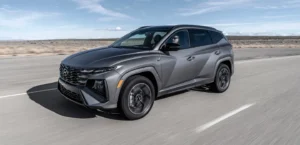
Key Features of Comfort and Space
| Feature | Description |
| Rear Seat Legroom | 41.3 inches |
| Rear Seat Headroom | 39 inches |
| Cargo Space (Hybrid) | 74.5 cubic feet (rear seats folded) |
| Reclining Rear Seats | Extra comfort for long drives |
Pros and Cons of Comfort and Space
Pros:
- Exceptional rear seat legroom and headroom, ideal for families.
- Good cargo space with easy folding seats.
- Reclining rear seats enhance comfort on long drives.
Cons:
- Hybrid models lack a spare tire, which may be a drawback for some buyers.
Hyundai Tucson Performance: Powertrain Options
Tucson still has a variety of powertrain options to accommodate different driving needs. The gas versions have a 2.5-liter 4-cylinder engine that has 187 horsepower, providing a relatively good blend of power, fuel economy, and efficiency. The hybrids offer more power with a 1.6-liter turbocharged 4-cylinder engine with an electric motor for a total of 231 horsepower. The plug-in hybrid increases power output to 268 horsepower, making it the most powerful option available.
Powertrain Options
| Powertrain | Horsepower | Drive Type |
| Gas | 187 HP | FWD / AWD |
| Hybrid | 231 HP | AWD |
| Plug-in Hybrid | 268 HP | AWD |
Fuel Efficiency
| Model | Fuel Efficiency |
| Hybrid | 38 MPG combined |
| Plug-in Hybrid | 32 miles electric range |
Pros and Cons of Performance
Pros:
- Multiple powertrain options provide different levels of performance and efficiency.
- Impressive fuel economy on hybrid and plug-in models.
- Standard all-wheel drive on hybrids enhances traction and control.
Cons:
- Hybrid models may be less cost-effective than gas-powered versions.
- Plug-in hybrid slightly reduces cargo capacity due to battery placement.
Pricing and Value: Good Pricing
The 2025 Hyundai Tucson starts competitively at $36,855 for the base model with a 2.5-liter engine and front-wheel drive. The Limited hybrid model starts at $34,945, featuring premium value enhancements. The added value of advanced technology, spacious interiors, and powertrain options alongside its competitive pricing allows the Tucson to stand out in its segment, making it ideal for buyers looking for a modern family SUV.
Pricing Breakdown
| Trim | Starting Price |
| Base Model (Gas) | $36,855 |
| Limited Hybrid | $34,945 |
What is the seating capacity of the Hyundai Tucson?
The Hyundai Tucson offers seating for five passengers.
How many variants are available for the Hyundai Tucson in India?
The Tucson is available in multiple variants, including both petrol and diesel options.
What are the color options for the Hyundai Tucson?
The Tucson is available in seven colors: Polar White, Abyss Black Pearl, Fiery Red Dual Tone, Polar White Dual Tone, Fiery Red, Amazon Grey, and Starry Night.
What engine options are available for the Hyundai Tucson?
The Tucson offers two engine options:
A 2.0-liter petrol engine producing 156 PS of power and 192 Nm of torque.
A 2.0-liter diesel engine generating 186 PS of power and 416 Nm of torque.
What is the mileage of the Hyundai Tucson?
The mileage varies by variant:
Petrol version: Approximately 13 kmpl.
Diesel version: Approximately 18 kmpl.
What is the boot space of the Hyundai Tucson?
The Tucson offers a boot space of 540 liters.
What is the fuel tank capacity of the Hyundai Tucson?
The fuel tank capacity is 54 liters.
Does the Hyundai Tucson have a sunroof?
Yes, the Tucson comes equipped with a panoramic sunroof.
What safety features are available in the Hyundai Tucson?
The Tucson is equipped with Hyundai SmartSense (ADAS), offering features like Forward Collision-Avoidance Assist, Lane Keeping Assist, and Blind-Spot View Monitor.
What is the price range of the Hyundai Tucson in India?
The price ranges from approximately ₹29.27 lakh to ₹36.04 lakh (ex-showroom).
Should You Buy the 2025 Hyundai Tucson?
The Tucson competes well in the compact SUV market with its sleek design, modern features, and good efficiency. Its performance is good, and the updated exterior gives it a more rugged look, unlike its predecessors. Furthermore, capitalizing on updated design trends, the high-quality materials applied to the interior, along with other tech upgrades, result in an astonishing premium feel.
The flexible hybrid configurations and spacious seating along with ample cargo room make the Tucson a family-friendly option. Hyundai caters to every customer by including the fuel-efficient hybrid, powerful plug-in hybrid, and a reliable gas engine. Priced competitively, and well-known for its reliability, the 2025 Hyundai Tucson checks a lot of boxes for anyone looking to buy a compact SUV.
Author- Ayush
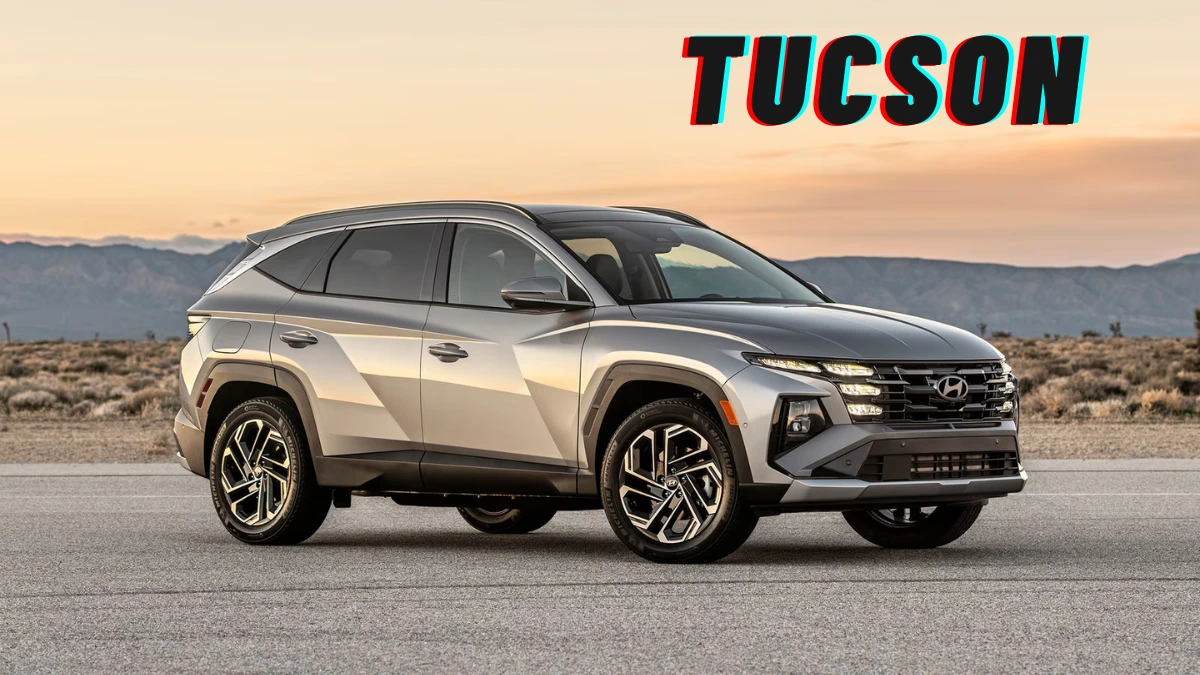
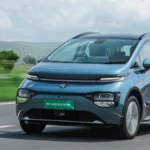

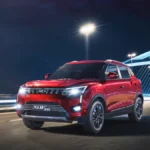
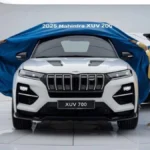

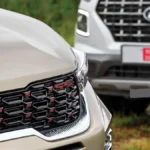
1 thought on “2025 Hyundai Tucson: A Complete Examination of Its Updates, Design, and Performance”